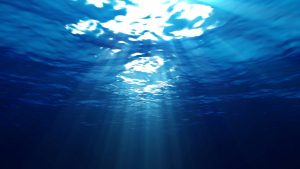Salinity refers to the amount of salt content per unit volume, and it varies in seawater from different regions and different temperatures. Specific gravity refers to the density of seawater divided by the density of distilled water. Since the density of distilled water is equal to 1, the specific gravity of seawater is always greater than 1.
The salinity and specific gravity of seawater vary with different water temperatures. For example, in coral reef areas, at a water temperature of 25℃, the specific gravity of natural seawater is measured to be between 1.022 and 1.023, and the salinity of natural seawater is between 3.3% and 3.5%. Therefore, when keeping marine ornamental fish in an aquarium, the specific gravity of the seawater should be controlled between 1.022 and 1.023, and the salinity should be controlled between 3.3% and 3.5%.

About Some Characteristics of Seawater – Salinity and Specific Gravity.
In reality, measuring the salinity of seawater is difficult, and it is estimated based on the values obtained from a liquid hydrometer and a conductivity meter. The conductivity method uses a conductivity meter to measure the amount of charged ions in seawater, in order to infer the salinity of the seawater. However, it is less commonly used in practical breeding. The specific gravity method calculates the salinity of seawater based on the ratio of its density to pure water, and it is more commonly used in the breeding of marine ornamental fish. When conducting tests, attention should be paid to the water temperature at that time, and only values obtained at the same water temperature can be compared. This ensures the stability of seawater specific gravity and controls the variation of seawater salinity.